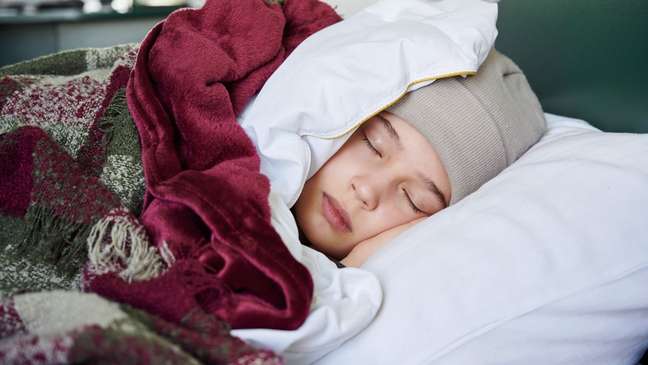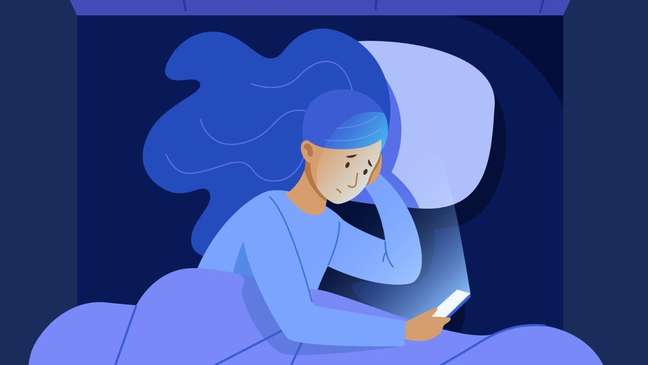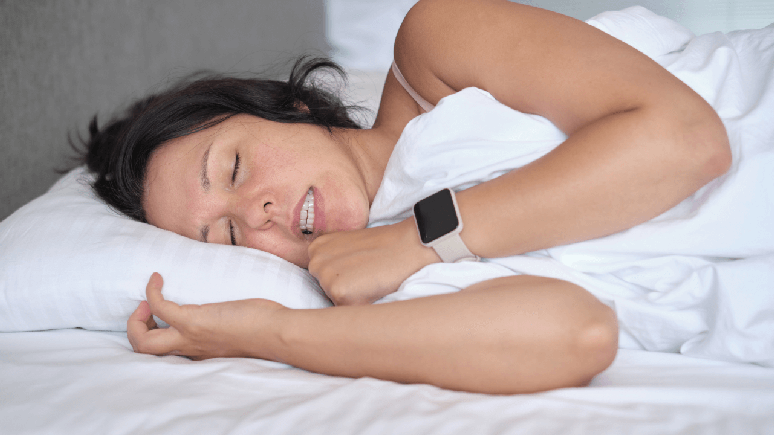Do you have trouble sleeping when temperatures drop? Find out why and how to get a good night’s sleep in winter

Winter is one of the seasons that makes you want to sleep the most, right? But for some people, lowering the temperature is more of a hindrance than a help in this regard. According to data from a study conducted by SleepUp, a platform that uses digital therapy to treat insomnia, 24% of respondents said they sleep more during the winterwhile about 46% think the cold itself is the main factor that interferes with sleep. Finally, for more than 23% of people, common breathing problems during this period end up compromising sleep.
Also according to the study, to minimize the impact of low temperatures during rest, the individuals analyzed revealed that they resort to some strategies. However, as research shows, 44% of these people engage in behaviors that do more harm than good in sleep quality: 13% reported using electronic devices to fall asleep.
Factors that interfere with sleep in the winter
SleepUp Research Director Gabriel Pires warns him The use of electronics before bed is one of the biggest factors that compromise sleepcausing just the opposite effect: the delay in the process of falling asleep.
In addition to the mobile phone, the room climate also influences a regulated sleep. Studies indicate this the ideal room temperature to ensure a good night’s rest it is between 18 ° C and 22 ° C. In this way it is very common for people to feel an impact on the quality of sleep as winter approaches.

According to Gabriel, sleep is very important for immunity, and going without sleep or sleeping poorly can compromise the immune system and the immune response, making people more susceptible to colds and flu, as well as intensifying cases of rhinitis, sinusitis, allergy or asthma.
The specialist also reminds that when we relax and sleep, our body temperature drops, so it is necessary to protect yourself well from the cold. “Also, the early hours of the morning are generally colder. Therefore, you need to be aware of some important points before bed so that this excessive cold during the night does not cause nocturnal awakenings and does not affect sleep,” he adds.
So, for a quieter night’s sleep, Discover 6 tips for sleeping better on cold days:
1. Staying warm improves sleep in the winter
use warm and comfortable pajamas or clothes to sleep. Also, have a reinforced blanket that is easily accessible in case you feel colder during the night; however, be careful not to overheat as this can also disturb sleep.
2. Take care of your allergy
If you have asthma, rhinitis, or other breathing problems, avoid blankets or clothing that could cause an allergy.
3. A hot drink can help!
Hot drinks help you warm up and relax, but don’t overdo it so you don’t have to wake up during the night to go to the bathroom.
4. Avoid drinks that disrupt sleep
Avoid alcoholic beverages, caffeine, and other types of stimulants such as mate or green tea. They can keep you up at night.
5. Do not use electronic items
It can be tempting to spend more time lying under the covers, but avoid staying in bed beyond the time you go to sleep, i.e. not watching TV, using the Internet or using your cell phone.
6. Do not use over-the-counter sleeping pills
Do not resort to sleeping pills without medical supervision, give preference to non-drug solutions that treat the causes of the problem.
Source: Gabriel Pires, research director at SleepUp.
Source: Terra
Benjamin Smith is a fashion journalist and author at Gossipify, known for his coverage of the latest fashion trends and industry insights. He writes about clothing, shoes, accessories, and runway shows, providing in-depth analysis and unique perspectives. He’s respected for his ability to spot emerging designers and trends, and for providing practical fashion advice to readers.





![Un Si Grand Soleil Preview: Episode Summary for Monday, October 27, 2025 [SPOILERS] Un Si Grand Soleil Preview: Episode Summary for Monday, October 27, 2025 [SPOILERS]](https://fr.web.img4.acsta.net/img/16/ec/16ecdc89ab22d2242ca3490a29003c5c.jpg)


